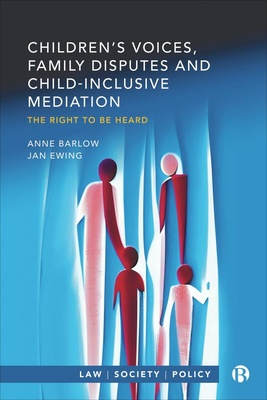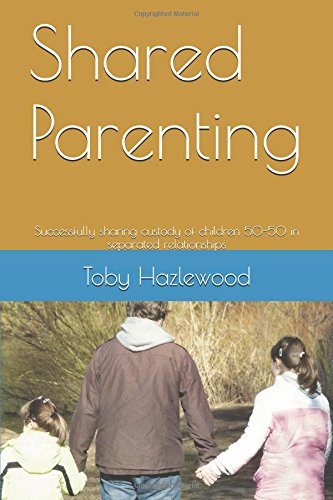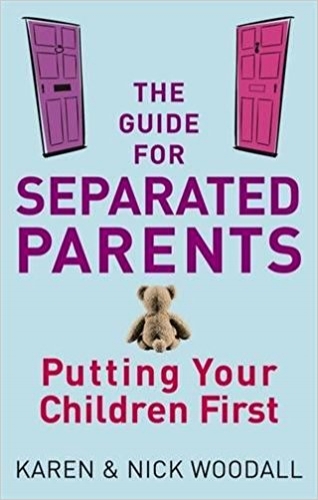Key topics
Shared care
FAQs
How does the Child Maintenance Service decide on equal shared care?
When both parents are looking after their children for equal amounts of time neither of them should be assessed by the Child Maintenance Service (CMS) to pay maintenance. Equal care is not just equal numbers of overnights – it relates to day-to-day care. If there is a dispute about whether maintenance should be due, the CMS sometimes wrongly presumes that the parent who receives child benefit should receiving maintenance. But according to an Upper Tribunal Decision evidence provided about the equality of day-to-day care by both parents can be used to decide neither parent pays maintenance even when one of them is in receipt of child benefit. See also this decision and this decision
Do you need to tell your ex about a new relationship?
There is no single answer. There is no legal requirement to. It is your business. But if/when she finds out you are likely to be asked why you kept it secret. The practical issue is whether your children come to know about this relationship. In most cases it is sensible to keep your relationship with a new partner separate from your relationship with your children for quite a while until you know what the new relationship is going to be. Here are a few more ideas.
What happens when parents disagree about child vaccination?
Despite recent concerns about MMR vaccination, there now seems to be widespread agreement that the routine childhood vaccinations are very worthwhile. The onus is on the parent who refuses a vaccination for their child to take court action to prevent it. A recent English appeal judgement supported a local authority which wanted to vaccinate a child against the wishes of the parents. Anyone arguing in favour of child vaccinations should be able to use this to reinforce their case if the issue goes to court. A more recent English judgement concluded that refusal of Covid vaccination by one parent could also be overcome.
What happens to contact arrangements if a “local lockdown” is imposed?
As with all the restrictions connected with COVID-19, travel to continue contact arrangements is an explicit exception. The Scottish Government Guidance connected to the Aberdeen local lockdown is here.
Of course the health of the child is important and both parents will want to ensure the child is travelling from one healthy household to another. The local lockdown shouldn’t be used to disrupt safe contact whether it is court ordered or established informally. Equally, contact shouldn’t be pushed if there is legitimate concern that one parent may have been contacted through track and trace or even may suspect that s/he may have been in contact with one of the local outbreaks.
Can one parent stop a child being vaccinated?
Some types of child vaccination such as MMR have attracted opposition, and this is also happening with Coronavirus vaccines for children. If parents don’t agree whether a child should be vaccinated, the matter can be raised in court. The matter becomes more complicated if only the mother has parental rights and responsibilities or if a child is in care of the local authority. A recent English court judgement endorses the wisdom and efficacy of vaccination and places the onus on the parent who opposes vaccination to raise court action to stop the vaccination – see this roundup article for more background. A more recent English judgment applies this to Covid vaccination
I have contact time with my kids coming up but my ex has told me they won’t come because of Coronavirus. What should I do.
If communication isn’t good with the other parent there is a tendency to be suspicious, quite apart from the upset that comes with losing time with your children. At the present moment (though the situation is changing at short notice) if neither the children nor their parent – or you – have been in direct contact with someone diagnosed with Coronavirus then contact ought to take place if there is agreement between parents or a court order. There is official guidance supporting this and the lockdown law includes this as an exclusion in the movement restrictions. Parent Club also has useful information
The decision might be being made in good faith, although overcautious. However, even if you are suspicious there is no great purpose in having an argument. Our advice is to demonstrate that you are a responsible parent with concern about your children’s health. You could reply – by text or e mail so you have a record of it – asking for some form of Face Time with your children during the time you should have had them. If the other parent is being genuine there will be no reason to refuse. If there is no prohibition on sending anything through the post you can send a cheery card saying that you hope to see them soon. Government guidance is that self-isolation should be 10 days if no symptoms have developed in the meantime.
How much parental leave can a father take?
Fathers in the UK may be eligible for one or two weeks of paid paternity leave, paternity pay and shared parental leave and pay. See the government web site for full details. Employment issues like this are not devolved to the Scottish Government. This level of support for fathers is far poorer than many other countries. Shared Parenting Scotland considers that improved paternal leave would lead to increased involvement in childcare by fathers. Consequently this should make shared parenting more likely. The Fatherhood Institute’s research study on paternity leave reports on research evidence supporting this view.
What proportion of parents suffer from post-natal depression?
It is estimated that at least one in ten women are affected by post-natal depression (PND) within a year of giving birth. A smaller but not insignificant proportion of fathers are also affected. Contact your GP or health visitor if you think that you or your partner are affected by PND. Local support organisations such as those listed here can also help. Fathers Network Scotland has been training perinatal health professionals to ask new dads as well as new mums how they’re feeling.
Do I have the right to obtain health information about my child?
If both parents have parental rights and responsibilities they should have equal rights to obtain health information about their children, unless there is a court order preventing one of both of them from having this information. In practice the parent who has most care of the children may restrict or prevent this communication. Health providers can be reluctant to go against such restrictions, and we would suggest that it is best to make a formal request by letter or email to a senior staff member if this problem occurs. For children aged 12 or above, the health provider has to respect the views of a child or young person if they don’t want one or both of their parents to receive information (Gillick Competent) The British Medical Association issues BMA Parental Responsibility guidance on this issue.
Can I attend health appointments for my child?
We have recently lauched the new Shared Parenting Scotland website and are continuing to work hard to develop the content. We hope to have this available soon. In the meantime, if you have any specifc questions, please contact us.
What rights do grandparents have to see their grandchildren?
Grandparents can often find it difficult to have regular contact with their grandchildren when problems arise between parents. This becomes ever more difficult following upon a separation or divorce. Sometimes, grandparents’ contact can also suffer due to conflict or a breakdown in their own relationships with the children’s parents. Although grandparents can also seek contact through a court order, this can be difficult and expensive. Contact Shared Parenting Scotland or Grandparents Apart for further information or see the Scottish Government Charter For Grandchildren
Who can get information from a school about their child’s progress?
When contact is restricted or completely stopped, a parent can still obtain information from their child’s school. This applies to all biological parents, not just those who have parental rights and responsibilities. If you haven’t been in contact with that school, start by sending a letter to the head teacher to introduce yourself and show that you are entitled to receive the information. See our guide for further information and letter templates.
What standards are applied if a child is schooled at home?
Home education is allowed in Scotland as an alternative to attending a school. The local authority has a responsibility to ensure that this education meets certain standards, and the parent of every child of school age has the duty to provide efficient education for him suitable to his age, ability and aptitude either by causing him to attend a public school regularly or by other means. In this connection, parents are the biological parents, not just those with parental responsibilities and rights.
We have recently launched the Shared Parenting Scotland website and are continuing to develop the content, please bear with us whilst this happens. In the meantime, if you have specific questions, please contact us
How to resolve a dispute over choice of school?
Choosing which school to attend may involve factors other that the relative quality of different schools. Sometimes the dispute relates to the distance from each parent’s home, or to the type of school (local authority, private, religious or with other special features). These dispute occasionally end up in court either as requests for specific issue orders or as part of a wider residence dispute. The decision should always be made on what is in the best interests of the child, but determining best interests can be tricky. In one case the sheriff actually visited both schools in order to determine which was most suitable. A recent case concerned the choice between a local authority school near to one parent’s house and a Gaelic medium school which would have required a longer journey to school but which would maintain the language of the other parent. In that case it was decided that the nearby school would be best for the child. Such cases are costly and only settle the immediate question – avoid them if at all possible.
How can contact time be arranged?
There are many ways of dividing the time that children spend with each parent. Factors such are how far apart the parents live, work patterns, the age of the children and whether child maintenance can be agreed can affect what works for each family. Here are some of the patterns that are commonly in use:
- Week about – children spend one full week in one household and the next week in the other household.
- Split weeks – the children spend four days with one parent then three with the other, reversing this pattern the next week.
- Days about – may be best for young children so that they do not spend too much time away from either parent.
When the children are at school age it is also necessary to work out a pattern for the holidays that allows for longer periods with each parent.
How can conflict be avoided at contact handovers?
For older children, it is sometimes best to pick up and drop off children at school, rather than at the house of the other parent. Handovers can be a hard to manage both for parents and children, and if arguments cannot be avoided then this is one way to make things easier. Children can find the transition from one parent to the other very difficult, as it a time when their loyalty to each of their parents is tested. It’s not unusual for children to become withdrawn or distressed at this time, which sometimes leads to both parents getting the false impression that something is wrong in the other household. Try your best to remain calm and positive if the handover is with the other parent, and if difficult things are said just don’t be provoked into responding. Attending a Parenting Apart course or training organised by Shared Parenting Scotland helps to build up the skills to deal with these situations.
How can children give their views on contact issues?
At present there are various ways for obtaining children’s views during a dispute about contact. The court can issue an form-f09 for children to indicate their views. The sheriff can talk to a child or order a Child Welfare Reporter to prepare a report to court. The legislation that is being currently considered by the Scottish Parliament will include consideration of a range of other ways in which children can give their views and also whether feedback can be given to them about what the court decides. Shared Parenting Scotland considers that it is also very important to let the child know that their views are important but will not be the deciding factor, and also that any person who is obtaining children’s views should properly trained. If the Scottish Parliament also incorporates the UN Convention on the Rights of the Child into Scottish law there may be further changes.
Can a 12 year old decide what happens about contact?
The 1995 Children (Scotland) Act says that the court should allow a child to express views and have regard to them as far as possible. It also says that the court should take account if the child’s age and maturity and that “a child twelve years of age or more shall be presumed to be of sufficient age and maturity to form a view” (section 6).
The 2020 Children (Scotland) Act removes this mention of age 12. Although that legislation hadn’t been enacted at February 2024 the court will now consider the views of much younger children. Whatever the age, the views of a child are not the deciding factor, although the older the child the more impact their views will have on the final decision.
What can I do to get more time to see my children at Christmas?
If your court action requests time with your child at Christmas remember that the sheriff will only consider the childrens feelings, not yours. Some sheriffs will agree to splitting the day between parents, whereas others are more likely to agree to let you have them on Christmas day on alternate years. You might even come up against a very old-fashioned sheriff who feels that children should be with their mother at Christmas. Your lawyer should know what the local sheriff are like. Try asking for what you think is reasonable but be prepared to back down quickly if there is resistance – if you can show you are being reasonable and willing to negotiate that will strengthen your case. See the factsheet on Christmas.
My lawyer has suggested that it will improve my chances of getting more contact if I do parenting classes – who runs them?
Look on your local council web site to see if they run any suitable classes, or try contacting organisations like Parent Network Scotland or Mellow Parenting. A Google search should show up smaller local organisations in your area. You may find that some classes say that they are only for parents who have contact with their child – try politely and firmly to persuade them that you need the training to help resume contact.
Guides/Publications
Because it’s for the kids
Equal Parents
Mom’s House, Dad’s House: A Complete Guide for Parents Who Are Separated, Divorced, or Living Apart
Shared Parenting: Successfully sharing custody of children 50-50 in separated relationships
The Guide For Separated Parents: Putting children first
Quick responses to high conflict people
Talking to your children about separation
Shared parenting promoted in Scottish parenting book
Useful Books

Child-Inclusive Mediation
“The right to be heard” is the…

The 50/50 Solution
Emma Johnson’s new book brings…

It’s Not About Us
Darlene Taylor has written a c…

Myths and Lies About Dads: How They Hurt Us All
A new book from Dr Linda Niels…

Coparenting BIFF guide published
Despite their slightly alarmin…

Mom’s House, Dad’s House: A Complete Guide for Parents Who Are Separated, Divorced, or Living Apart
Good for: simple introductions to legal systems and parenting agreements. Tips for a “businesslike” relationship with an ex-partner.

Shared Parenting: Successfully sharing custody of children 50-50 in separated relationships
Good for: an honest and personal account from a British shared parenting Dad.

The Guide For Separated Parents: Putting children first
Good for: practical tips when taking a child-centered approach.


